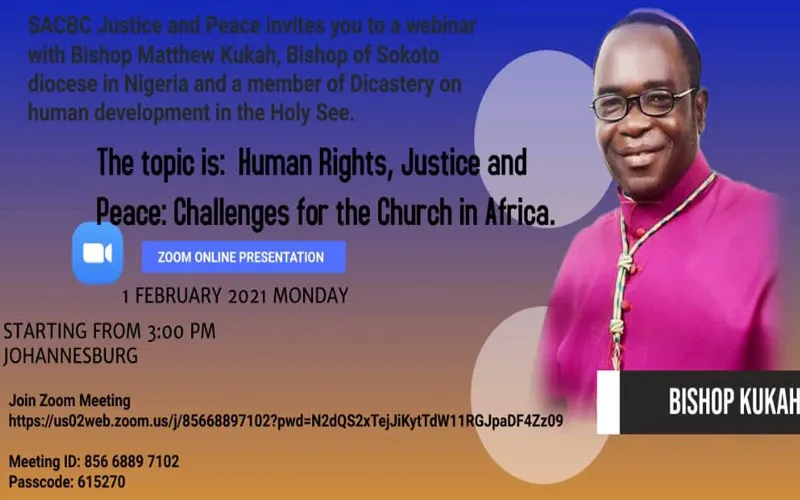The Church must identify institutions that deal with reconciliation, justice and peace, and deploy “quality manpower” to them, the Nigerian Bishop further said.
“We have to identify those institutions that are necessary if we are going to be able to fight for justice and if we are going to deal with issues of reconciliation. Those issues relate to the quality of manpower that is manning our Legislatures,” the Bishop who was recently appointed to the Vatican’s Dicastery for Promoting Integral Human Development continued.
It is important for the Church on the world’s second largest continent to have the manpower as it helps in making good decisions, the 68-year-old Nigerian Bishop emphasized.
“As Catholics the mistake we make is that because of lack of interest in politics and because of our backseat position we wait until a law, for example on abortion, has been made then we start running up and down,” he remarked.
Bishop Kukah went on to caution against the “backseat position” saying, if the Church does not “identify the Legislature as a major platform for the guarantee of justice and law, and if we are not present when the laws are being made, we will continue to suffer the consequences.”
“Who is in our Judiciary? These are the platforms for advocacy in terms of the quality of justice that citizens have to live with,” Bishop Kukah posed and noted during the February 1 webinar organized under the theme, “Human Right, Justice and Peace: Challenges for the Church in Africa.”
In his keynote address, Bishop Kukah also called on Catholic leaders across Africa to work toward guiding the people of God on how to go about politics saying, “We must work with greater speed to reposition the Church on the continent of Africa so that we can provide our moral compass, and let our people understand how politics ought to be played.”
In fighting for justice, Church leaders “need to be much bolder when the stakes are high,” he said adding, “Beyond the comforts of our own Cathedrals and our own pastoral responsibilities around us, there is an urgent need for us to become a bit more ambitious.”
“Every Church leader must measure what they are doing, not by the presence of those in power and how they feel comfortable with you but let them know that it is your obligation to tell them what is best for you and the people,” Bishop Kukah whose Christmas 2020 message critical of the Muhammadu Buhari-led government sparked controversy said February 1.
Magdalene Kahiu is a Kenyan journalist with passion in Church communication. She holds a Degree in Social Communications from the Catholic University of Eastern Africa (CUEA). Currently, she works as a journalist for ACI Africa.








